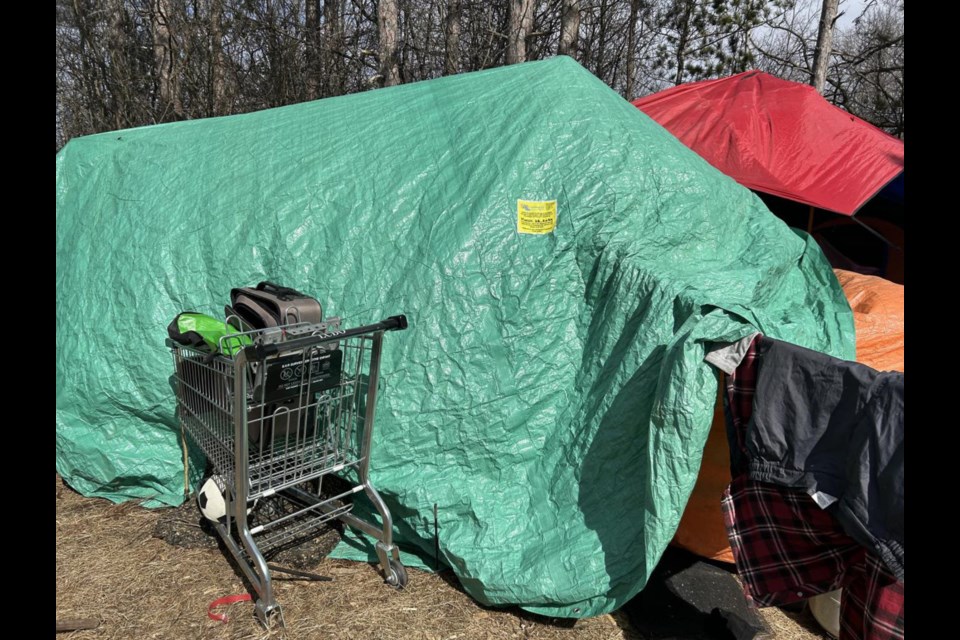For the second time in two years, housing advocates in Waterloo region are taking a local municipality to court to stop the eviction of an encampment.
Located on Banchton Road, tents and make-shift structures line a small forested area deemed as city property. The City of Cambridge has requested that each encampment resident remove their belongings and vacate the premises by March 28.
According to Waterloo Region Community Legal Services, they will be taking the city to court in order to stop the eviction.
"The Community Legal Clinic will be at the Superior Court of Justice on Thursday at 10 a.m. (via zoom) seeking an interim injunction from the court to stop an eviction of encampment residents at the Banchton encampment in Cambridge," said WRCLS lawyer Ashley Schuitema in an email to CambridgeToday.
Stickers were posted on the tents by Cambridge bylaw recently that warn, "if the structure/tent is not removed by the date above the City of Cambridge will remove it and dispose of all items."
Schuitema took part in a similar case back in January 2023, when the legal services represented residents at the Victoria and Weber encampment in Kitchener.
Advocates and encampment residents were successful in their case and received an emergency injunction from justice Michael Valente to stop the forcible eviction.
The case in Cambridge will be similar as the eviction is slated to take place on the same day as the court hearing, with Schuitema looking to get an emergency injunction to halt the eviction process.
In the case of the Victoria Street encampment vs. the region, the Valente ruled that the region did not provide adequate housing options and outreach to each of the individuals and evicting them would go against their charter of rights and freedom.
This was a first-of-its-kind ruling and set a precedent for other cases in Hamilton and Kingston Ontario where encampments were allowed to stay on public land, echoing Justice Valente's decision.
In September, advocates were unsuccessful in challenging an eviction in Soper Park where about 50 residents were living. This was one of the largest encampments in the city after 150 Main Street shut down its encampment and residents moved to the nearby Soper Park area.
Since the closure in September, residents have spread out to smaller encampments all over the city, making it harder for outreach workers to access them and offer them services.
Laura Pin, University of Laurier professor and unhoused policy expert told CambridgeToday in an interview last year that when people go into hiding and off the beaten path, it makes it difficult for organizations to give them support.
The Branchton Road encampment is one in a long list of camps cropping up in the city. Another notable camp is located off Samuelson Street next to the CP rail tracks.
As encampments are shut down, others will grow and it is a revolving process, said Pin.
The City of Cambridge and WRCLS will meet in court on March 28.
